The headline annoyed me. I barely needed to read the story. In a few words, it not only managed to criticise, but to ridicule the speaker… who had voiced a personal opinion… thus passing judgement for the reader, without allowing them to think for themselves. I could not help wondering exactly how far this kind of covert manipulation and underground censorship of thought might go.
In 1543, Nicolaus Copernicus published a book expounding his theory that the sun was at the centre of the universe and the earth moved around it. He was not, by any means, the first to come up with the idea… Aristarchus of Samos, in the third century BC, had deduced that the earth moved around the sun and not, as had been thought before, the other way around. Copernicus’ theory met with some opposition, but as he died soon after his paper was published, the arguments were comparatively low-key.

The “Torun portrait” of Nicolaus Copernicus (anonymous, c. 1580)
Galileo Galilei was not so lucky. Having made his own observations and deductions, he championed heliocentrism at an epoch when most still believed the earth to be the centre of Creation. In 1615, the man now hailed as the “father of modern science” was hauled before the Inquisition, probably the highest authority in the Western world at that time. His theory was dismissed as “foolish and absurd”. In other words, he was inventing and promulgating a scenario that went against the ‘facts’ approved by authority. Galileo himself was forced to take back his theories before being placed under house arrest until his death in 1642.

Galileo Galilei, portrait by Domenico Tintoretto
Giordano Bruno had fared even worse at the hands of the Inquisition, but then, his ideas were even more outlandish. He had dared to suggest that not only was the sun the centre of our solar system, but that stars were also suns, at the centre of their own systems… and that some of the planets around them might even be inhabited!
The Catholic Church, which has, throughout her history, often been central in supporting scientific inquiry, was also the most powerful body in Europe at that time. For views that went against those of accepted authority, Bruno was tried by the Inquisition and sentenced to death. On 17 February 1600, his tongue was tied, so that he could speak no “wicked words”, he was stripped naked and hung upside down before being burned at the stake. With the clarity of hindsight and modern science, we can see how completely wrong the censorship of original thought and new ideas can be.
Art has been banned from exhibitions. Voices are silenced. From the hundreds of thousands of books burned under the Nazi regime that were seen as ‘subversive’, to the banning of books in schools and libraries that still goes on today, censorship of both media and ideas has been part of our history since time immemorial. That does not make it right.
These days, the power rests in the hands of governments, both regional and national, in the hands of corporations whose financial impact on economies may influence governments, and more recently, in the hands of those who regulate social media.
Many countries simply do not allow residents access to some of the giant social media platforms. Others demand that certain aspects and subjects are taboo and anyone breaching these restrictions may find their contributions removed or their accounts blocked. I recall having one of my accounts suspended for posting ‘obscene content’… which was a painting by one of the Old Masters that happened to show a bare-breasted goddess.

Obscene? The Judgement of Paris by Reubens. The National Gallery.
Misrepresentation and the massaging of facts are underhand methods of censorship. Give people only the part of the truth you want them to see… and present it convincingly as the whole truth, and the likelihood is that the vast majority will accept it. Because it is, after all, true…
Another means of censoring unwanted ideas is to simply cover them in ridicule. Once an idea is labelled as ‘lunatic fringe’, ‘pseudo-science’ or ‘conspiracy theory’, few are prepared to stand up and express their belief for fear of being themselves discredited. Now, there are a lot of strange ideas out there… as strange, perhaps, as Bruno’s speculation that there might be inhabited planets, or that stars could be other suns… or the dreadful idea that the earth is not the centre of Creation! Some of the ideas now wandering around the internet seem downright odd, some I personally find laughable… others I will consider. Maybe research the background myself… think it through …and make up my own mind. To me, that is the beauty of the web of information that is at our fingertips… we can, if we choose, access theological, philosophical and scientific debates, compare historical documents, learned papers and mainstream information. We do not have to accept anything that we are told. Nor should we.

The trial of Giordano Bruno by the Roman Inquisition. Bronze relief by Ettore Ferrari
Recently, there has been a move to apply more censorship to social media. I would uphold the idea of blocking content that incites hatred or violence, or encourages any kind of abusive or destructive behaviour. I can understand the reasoning behind closing the doors to the more dangerous misinformation, especially where health, for instance, is concerned. But I cannot agree with the censorship of content that simply expresses a personal opinion… no matter how weird and wonderful it might seem. That is the thin end of a wedge that could do untold damage to our freedom and ability to think for ourselves.
Almost all leaps in human understanding have begun with ideas that might have been seen as subversive in their time, challenging accepted beliefs and such facts as were available. It is only from those individuals who are willing to stand up and suggest a new way of thinking that our collective understanding of our world will grow.
We have the ability to accept or dismiss, to swallow an idea whole or use our own common sense and discernment to think things through and reach our own conclusions. We have an incredible amount of information now available to us… and we should have the right to think for ourselves.
‘Facts’ only represent the current state of our knowledge. They change as we learn. Many ideas that would, today, be firmly thrust into the realm of the lunatic fringe… like Bruno’s theories… may well turn out to be nearer the truth than we could have imagined. Then those same ideas attain respectability and we call them ‘history’.


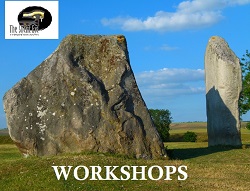

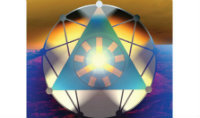

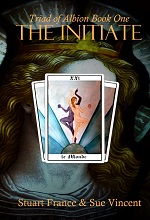


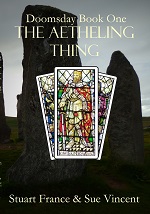
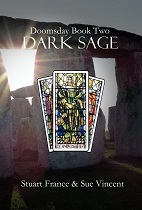








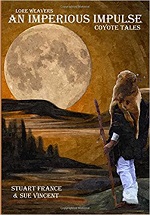


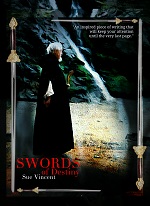

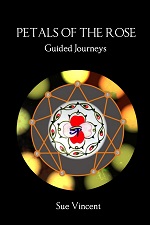

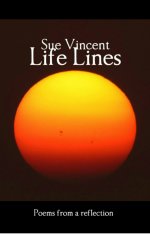




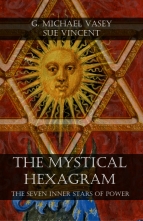

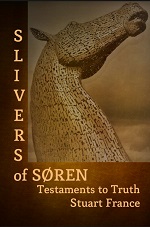


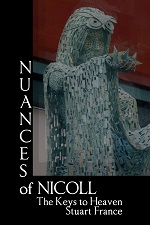


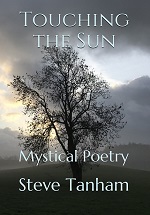

How true. The irritating and the absurd can become normative if allowed to develop and be debated
LikeLiked by 2 people
Informed thought and discussion would be good, but much of what we see and read seems to have already made our decisions for us.
LikeLike
We are rapidly walking blindfold into a world of extreme abnormality and utter nonsense… 😉
LikeLiked by 2 people
It does feel that way… 😦
LikeLiked by 1 person
Is there no end to this debilitating censorship?
LikeLiked by 1 person
Not while we permit it to influence our thinking.
LikeLiked by 1 person
Point!
LikeLiked by 1 person
I agree, Sue. They like to feed us only what they want, to see the world through their opinions and likes, not our own. I’ve never followed that constrictive way of seeing this and I’m dammed if I will. Believe nothing, trust no one and find your own truth. xxx
LikeLiked by 1 person
Agree or disagree with mainstream perspectives we have the right, and I think the duty, to form our own opinions.
LikeLike
Sue, I wish you had shared the article that prompted this blog. Whilst I agree with everything you say, you have not given me the opportunity to make my own judgement about the very piece that you describe as judgemental and manipulative. Is its writer not also entitled to an opinion?
LikeLike
A good point, Frank, but it was on the front page of a newspaper when I was shopping. I did actually try to find the article online, but without success.
LikeLike
I agree, too, Sue. Galileo is a great example of this. I studied him a couple of years ago, and its a wonder society hasn’t learned from the example. 🙂
LikeLike
We don’t seem to be very good as a species at learning from past mistakes…
LikeLiked by 2 people
So true. We really don’t.
LikeLiked by 1 person
so very well stated, sue –
LikeLike
Thank you, Beth.
LikeLiked by 1 person
Pingback: The Right to be Wrong | Sue Vincent’s Daily Echo | First Night History
Thank you for sharing, Sarah x
LikeLike
At least we are not as barbaric as we used to be…
LikeLike
I hope not… but I wonder how those whose words and ideas are ridiculed feel…
LikeLiked by 1 person
True, sticks and stones…
LikeLike
Exactly…
LikeLiked by 1 person
Thought provoking Sue… It is a challenge to not toe the party line whether it is in the scientific field or religion. We appear to be programmed with an instinctive need to be right.. or at least to be acknowledged as right, and it is amplified and ratified when it is a body of people all with that same conviction. Fear of the unknown and power are huge drivers of human behaviour both the ugly and the uplifting. It takes a brave person to stand out from the crowd with an opinion or belief that goes against perceived wisdom. One of the best things about being online is that you can switch off the opinions of those you don’t agree with, tempting though it is to get into a debate. I don’t mind in the slightest have my mind changed about an issue as long as there is reason and evidence to prove its validity.
LikeLiked by 1 person
Valid points, Sally. Sensible debate and discussion of even the wildest-seeming theories and premises should be possible… we do not need ‘authority’ to make up our minds for us. But unless we exercise our minds and discrimination, they are likely to atrophy like an unused muscle.
LikeLiked by 1 person
Another benefit of being online Sue…no shortage of amazing writers to challenge us in every way.. x
LikeLike
Absolutely, Sally. A benefit of which we should take full advantage. xx
LikeLiked by 1 person
Critical thinking and the ability to engage in a discussion without resorting to personal attacks and vitriol have become highly endangered skills. 😦
LikeLike
That is what worries me…
LikeLiked by 1 person
Me too. 😦
LikeLiked by 1 person
I have always wondered why people object so much to (for example) politicians and scientists changing their opinions. Aren’t we SUPPOSED to change our opinions based on new evidence? On changed opinions based on alterations to the world?
We aren’t supposed to hold the same opinions as young adults that we held as children. Why should older adults be held to opinions they had twenty or thirty years before?
It doesn’t make sense. If we can’t change our opinion, there’s no point in research. no point in thinking deeply on a subject. Humans are supposed to change. All of us are supposed to grow as we mature and reach new stages of growth, mentally and physically.
LikeLike
We are supposed to change… everything does, and in that lies our chance for growth. But we also need to be able to think and make informd choices in order to grow… and for that we need access to other opinions than our own… or those held by ‘authority’.
LikeLike